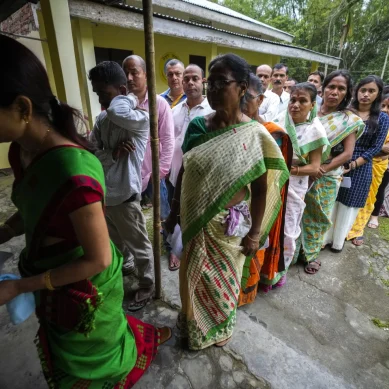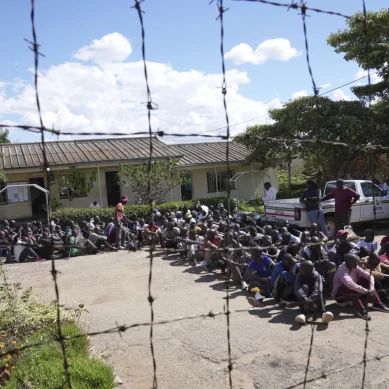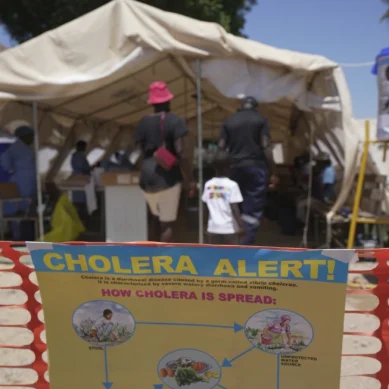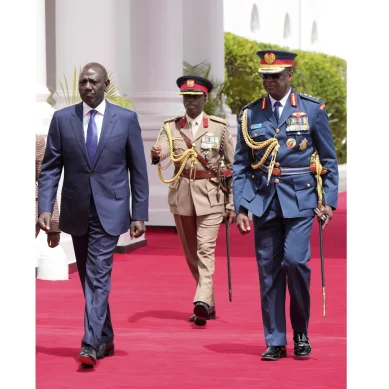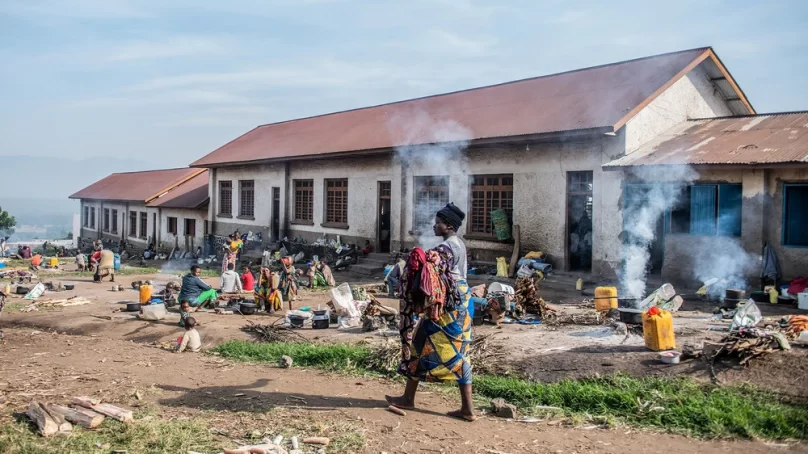
Aid officials in eastern the Democratic Republic of Congo (DRC) say they have limited funding to support recently displaced people and that insecurity has disrupted their operations.
“For 2022, we appealed for 1.8 billion dollars, [but] we received barely 20 per cent of this amount,” says Joseph Inganji, head of the UN’s emergency aid coordination agency (OCHA) in DRC official.
M23 is led by Congolese Tutsis and is part of a lineage of DRC rebel groups armed by Rwanda. Support began in the 1990s as Kigali hunted down Hutu militias who had fled to DRC after committing genocide against Rwanda’s Tutsis.
Rwanda denies backing the current offensive, while Willy Ngoma, the M23 spokesperson, said DRC officials are drawing the link with Kigali “to discredit us”. Still, UN sources and experts said Rwandan involvement in the conflict was certain.
A high-ranking Congolese army officer in North Kivu said the M23 has fired more than 100 shells at army positions on some days. He cited this as evidence that they aren’t like other local rebel groups, which are often ill-trained and poorly equipped.
“We are fighting against two armies: Rwanda and Uganda,” said the officer, who asked not to be named in order to speak freely. “We are the victims of an unwarranted aggression.”
The intensity of the fighting was evident in Rutshuru’s main hospital – now a de facto field clinic for injured soldiers. Bloodstained fatigues hung off clotheslines; soldiers nursed bullet and shrapnel wounds; and a morgue took in new bodies every day.
“Each time we gain ground, the enemy comes back with even more men,” said a sergeant, his hand wrapped in gauze that covered an amputated finger. “They are very well armed. They even shot down helicopters.”
Analysts say Kigali may be supporting M23 to reassert its political and economic influence in eastern DRC. This comes at a time when its regional rivals – Burundi and Uganda – have deployed troops to the Kivus with Kinshasa’s blessing.
“There is a will to control part of eastern Congo to keep a military and political influence,” said Jean-Jacques Wondo Omanyundu, a security analyst. “Sometimes things are negotiated quietly. But when they don’t get what they want, they attack.”
Rwanda’s defence interests may also play into the crisis. Kigali claims DRC is collaborating with the FDLR, which includes Hutu genocidaires. The group is relatively weak but poses a symbolic threat to a controlling, security-conscious Rwandan state.
Despite its historic Rwandan links, analysts say the M23 should not be framed as a proxy. The group’s top brass have long been wary of Kigali, while their mobilising power draws on the discrimination Congolese Tutsis face for having Rwandan roots.
That discrimination tends to increase during periods of M23 activity. Both Rwandans and Congolese of Rwandan descent have been targeted with hate speech and physical attacks across DRC in recent weeks.
One Congolese Tutsi lawyer from Goma that they were forced to hide at home for several days last month after protestors ransacked shops and searched for cars they suspected of transporting “Rwandans”.
The lawyer, who asked not to be named due to security concerns, said members of their community have been arrested and interrogated based on how they look, and because they were heard speaking Kinyarwanda, Rwanda’s most widely spoken language.
“When the police commander called on the population to bring machetes to protect the city against ‘the enemy’, I told myself that things were going to go really wrong,” the lawyer said. “We know who they see as ‘the enemy’”.
David Karambi, the president of Goma’s Tutsi community, said local authorities and community leaders have called for calm in recent days. But Karambi believes “the evil remains in [people’s] minds” and that violence “could ignite again”.
Tensions could escalate should the M23 push towards Goma, which is around 70 kilometres south of Rutshuru town. However, Ngoma, the rebel spokesperson, said capturing the city as they did in 2012 is not in the group’s plans.
The Congolese government has called for the M23 to withdraw from Bunagana, the border town they currently occupy, though it is unclear if the rebels would be willing to relinquish that military advantage.
The Congolese army is, meanwhile, benefiting from a rare upswell of support from local residents in North Kivu. Army officials say they’ll welcome youth who want to join their ranks, although reinforcements have been slow to arrive on the front line.
The high-ranking army officer said the military is being strengthened by other rebel groups in the region that also oppose the M23. “We are fighting a common enemy, on the same territory [so] de facto, we are fighting together,” they said.
The army officer said Kinshasa has forbidden direct collaboration between the army and armed militias. Yet a 17-year-old rebel from Kiwanja – a town near Rutshuru – says they had been given a weapon by the military.
“The [army] gave us AK-47s, but they told us that we must give them back when the M23 is repelled,” said the fighter, whose name is not being used because they are a minor.
Jacques Mbusa Buligho, the coordinator of UPDECO, an organisation that works to prevent the recruitment of child soldiers, said even “armed groups that were fighting each other… have now come together to confront the M23.”
Displaced people aren’t convinced of the army’s ability to defeat the rebels, however. Jean-Baptiste Luribikiye, a farmer, said he’s fled his home twice since May and that each time the military retake an area “there’s new fighting and the M23 comes back.”
Luribikiye said the recent rounds of conflict have had a major impact on his village and livelihood. “Everything has been looted,” he said. “I lost my goats and my cows. I don’t even know if my house is still standing.
- The New Humanitarian report
